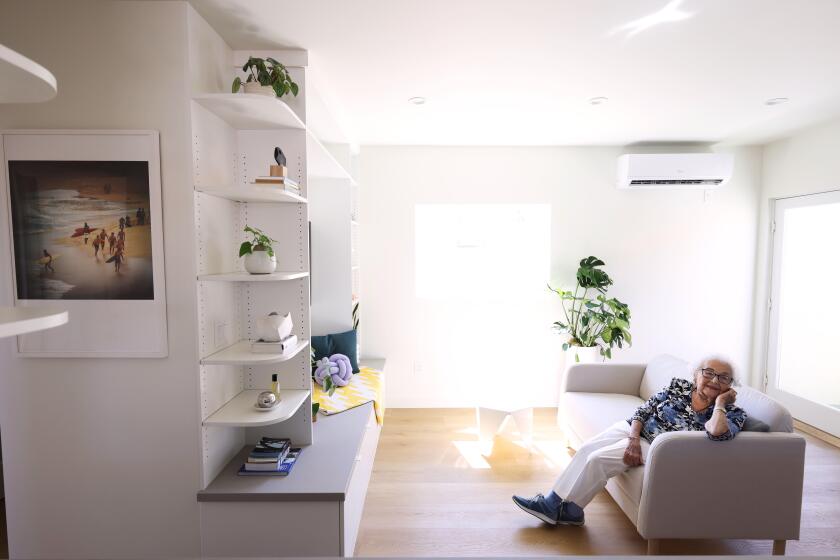$220,000 Settlement a Start for Repairs to Defects at Horton House
It wasn’t quite what they were looking for, but members of the San Diego Interfaith Housing Foundation figure $220,000 is a good start.
Now the foundation can start fixing the defects it claims were making life difficult for the residents of Horton House, a downtown housing project for the elderly and handicapped.
But the amount falls far short of the millions that Interfaith was hoping to receive from the architects and contractors who the organization claimed did shoddy, substandard work on the high-rise at 333 G St.
The nonprofit foundation, which owns the building, filed suit against the architects and builders four years ago claiming, among other things, that the heating system, plumbing, ventilation and closet space were inadequate for the needs of the elderly residents. The case finally went to trial Monday, and ended with a compromise settlement the next day.
“There is no admission of any liability whatsoever on our part,” said Glen Rasmussen, attorney for the architecture firm of Tucker, Sadler & Associates. “It’s basically an agreement between the parties to put aside our differences.”
Interfaith chairman Bob Carpenter said his organization is pleased that the money would allow for some modifications to the building, such as upgrading the heating system, but added: “I can’t really say we’re elated.”
“It isn’t enough to begin fixing all the things, but we can start,” said Interfaith board member Crosby Milne.
Attorney Steven A. McKinley said the settlement was reached primarily because Interfaith’s case was weakened by the testimony of a former official of the federal department of Housing and Urban Development, which oversaw the construction. “He testified that he consciously approved some of the construction problems that we believed were defects,” McKinley said Thursday. The recently retired HUD official, George Bradvica, defended his testimony Thursday in a telephone interview from his Los Angeles home. “They wanted top-class material, they wanted everything gold,” said Bradvica. The corner-cutting was necessary to keep the federal funding for the project, he said, “but I figured it was worth it if it would give 150 poor, elderly people a place to live.”
While the Interfaith board members may not agree with Bradvica’s assessment, they are pleased that the money from the settlement will afford some work on a new heating system. “Those residents will be happier and warmer now, and that really was the prime objective,” McKinley said.
More to Read
Sign up for Essential California
The most important California stories and recommendations in your inbox every morning.
You may occasionally receive promotional content from the Los Angeles Times.










